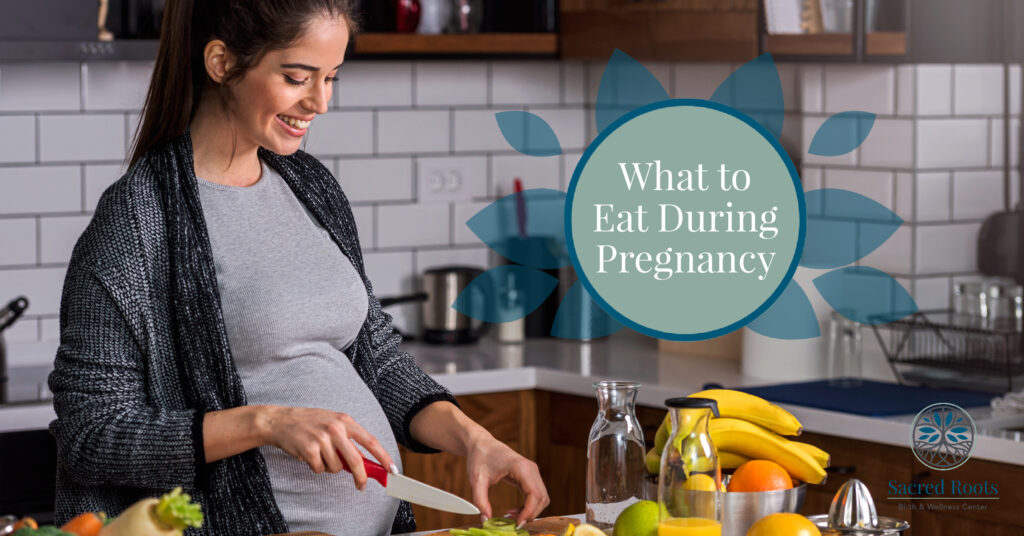What to Eat During Pregnancy
It’s common in pregnancy for your appetite to grow as you progress! With the new found appetite, a common question we are asked is what you should be eating during this period to help you have a healthy pregnancy. You should always consult with your healthcare provider about your specific dietary needs and restrictions, but for educational purposes, here are some tips to consider!
Importance of nutrition during pregnancy
Watching what you eat is not only essential to facilitate the growth of your baby, but it also helps ensure that you remain healthy during your pregnancy. Poor nutrition can lead to deficiencies and conditions including anemia, joint pain, and gestational diabetes.
Nutritional demand for certain nutrients like iron, calcium, and vitamin D naturally increases during pregnancy. Eating healthy food ensures you get these nutrients naturally without relying on supplements.
What is the best food to eat during pregnancy?
Everyone’s diet will be different, so consult with your healthcare provider. Some of the most commonly recommended foods to eat during pregnancy include:
1. Dairy
Dairy products are high in calcium, phosphorus, magnesium, and zinc. All of these are crucial in your bone development and maintenance. Healthy bones not only make labor easier, but also make you healthy and energized to take care of your baby later on. Yogurt is an excellent source of probiotics and helps improve gut health during pregnancy.
2. Protein
While you may be averse to certain types of meats during your pregnancy, you should eat them if you can! Protein-rich foods can actually help curb nausea in some instances. However, if you can’t eat meat, try eating eggs! Eggs are high in choline which is an important nutrient in terms of ensuring your baby’s brain development. Chickpeas are also a great source of protein if you are not too keen on meat.
3. Legumes
Legumes are a great plant-based source of important nutrients like protein, folate, fiber, and also calcium! Folate is super important to prevent any neurological anomalies in the baby. This is why it is a big ingredient in your prenatal vitamins as well! The fiber in your diet helps prevent constipation which can be a nuisance to deal with during pregnancy. Not to mention, they are super filling and help keep you full for hours. This may prevent you from snacking on not so healthy food options.
4. Green vegetables
Green vegetables are high in vitamins such as vitamins A, C, and K plus iron. Iron deficiency is one of the most common causes of anemia during pregnancy. Taking an adequate amount of green leafy vegetables in your diet daily helps prevent this deficiency and ensures your blood levels remain adequate throughout pregnancy and even after labor. Green leafy vegetables are also high in fiber, which again helps prevent constipation during pregnancy.
5. Fish
While you’re off sushi during pregnancy, it doesn’t mean you shouldn’t be eating any fish at all! Fatty fish like Salmon can be a great source of Vitamin D and omega-3 fatty acids, and vitamin D helps ensure your bone health. Omega 3 fatty acids help ensure the healthy development of your baby’s eyes and brain. In certain cases, omega-3 fatty acids have also been said to ensure that you deliver at full-term pregnancy!
What should you avoid eating when pregnant?
You probably know the major things you need to avoid during pregnancy; alcohol, drugs (not prescribed by your healthcare provider), and uncooked fish aka sushi.
Other than that, you aren’t strictly forbidden to eat anything. It’s always a good idea to avoid foods that trigger your nausea and cause indigestion. These include fatty foods or foods that are extra spicy. You should also avoid high-mercury fish like mackerel and swordfish. Since high levels of such contaminants can prove to be toxic to your and your baby’s health.
If you are wanting to learn more about creating a healthy diet for your pregnancy, ask your midwife at your next appointment!



